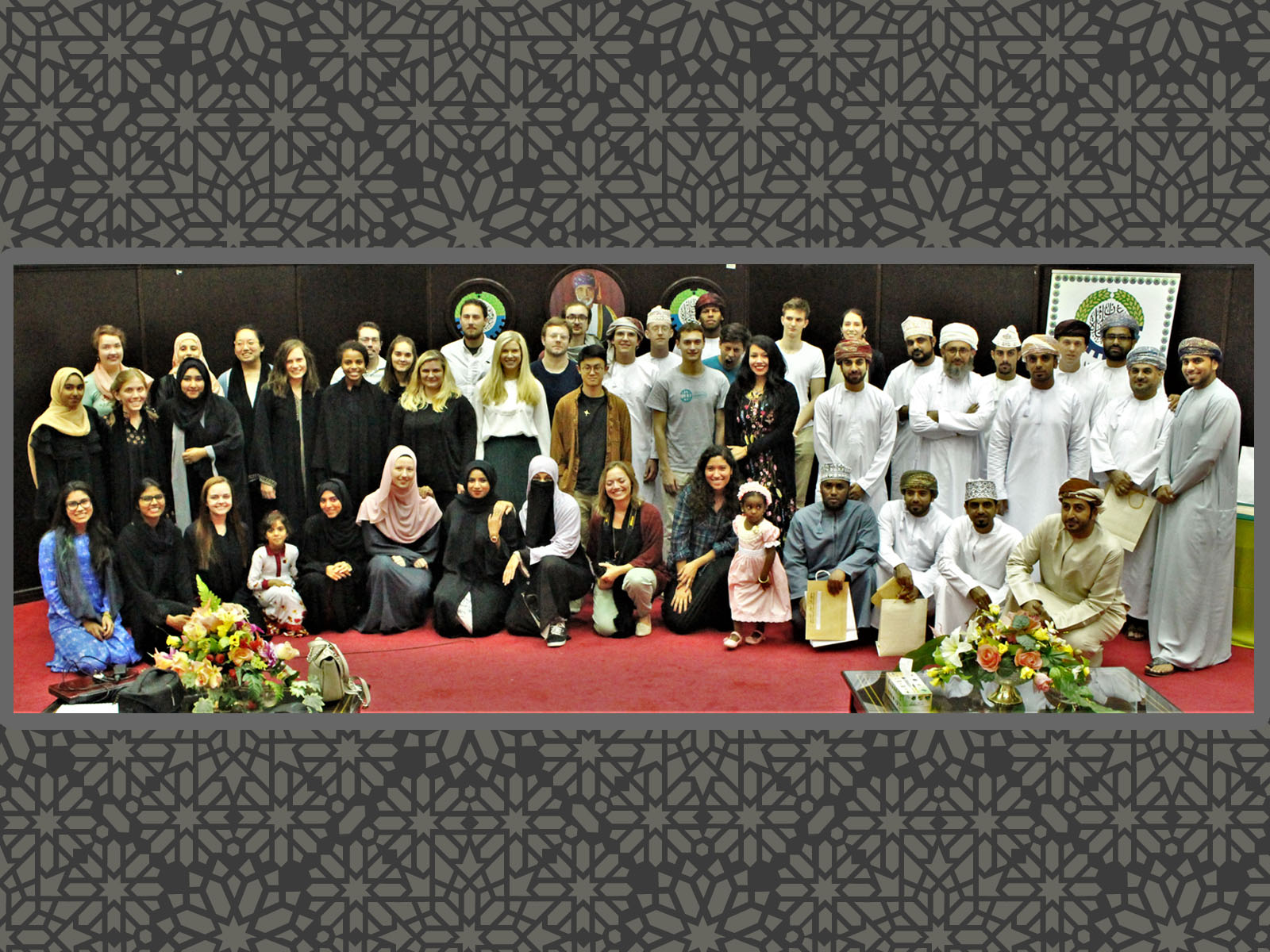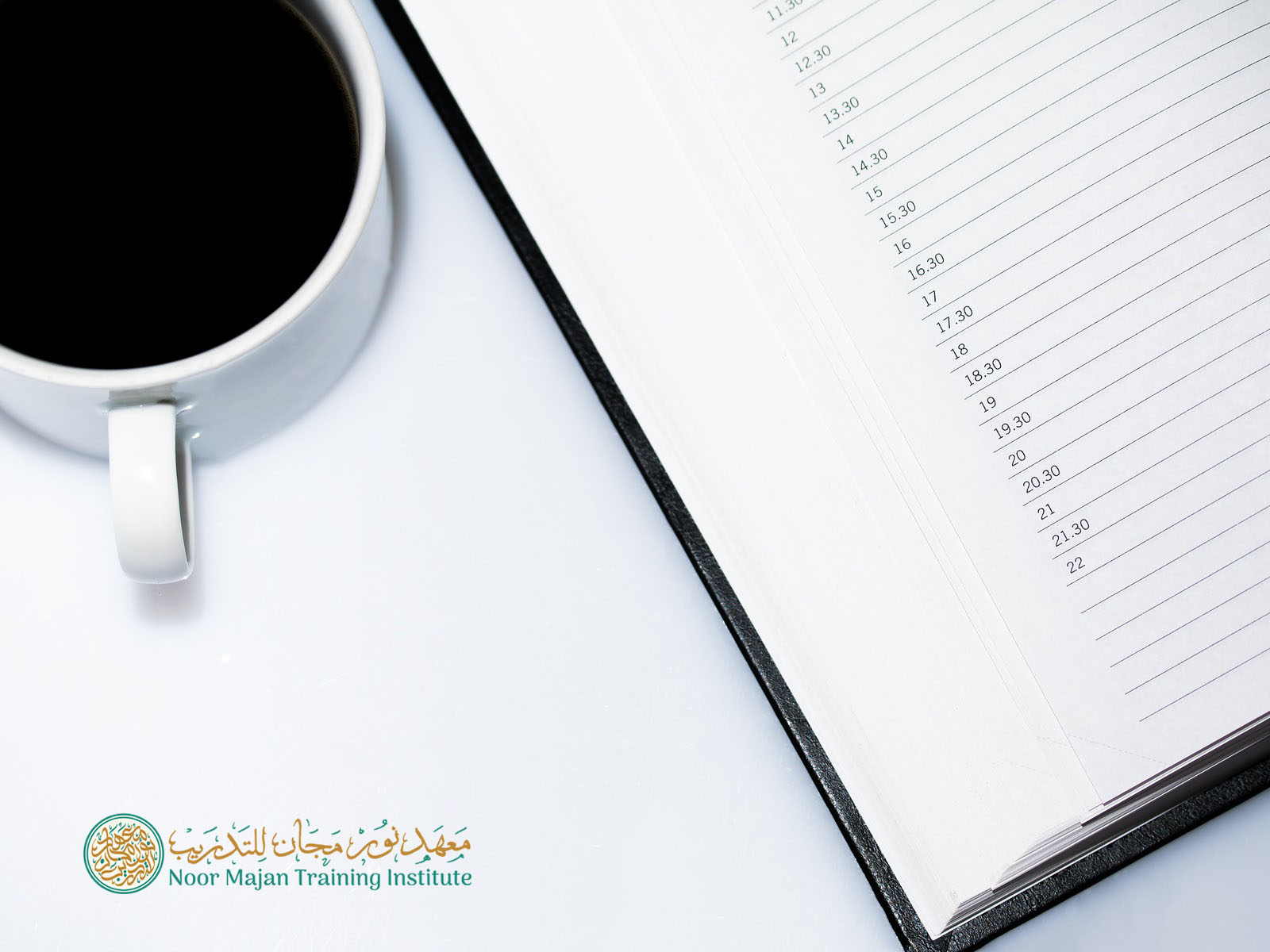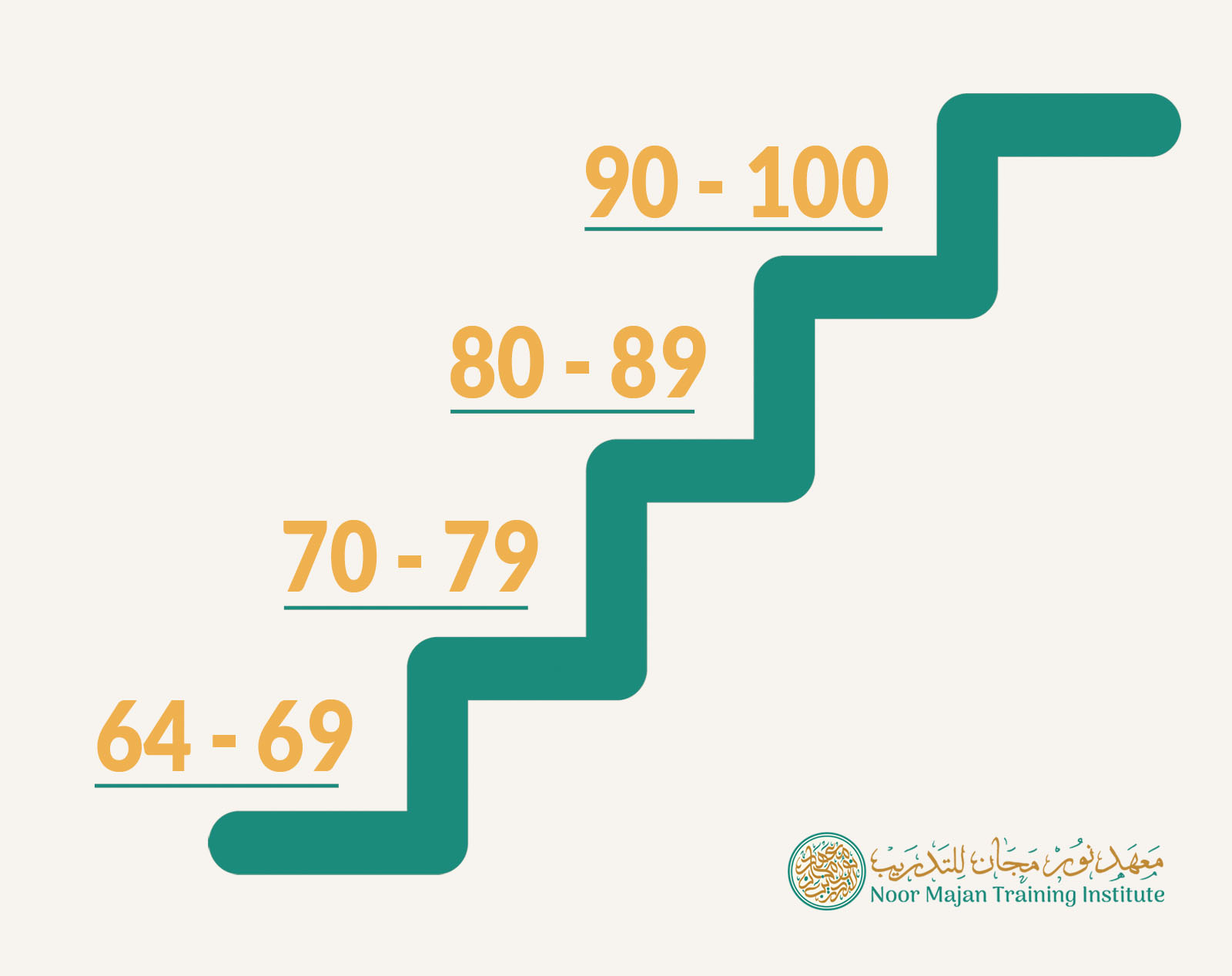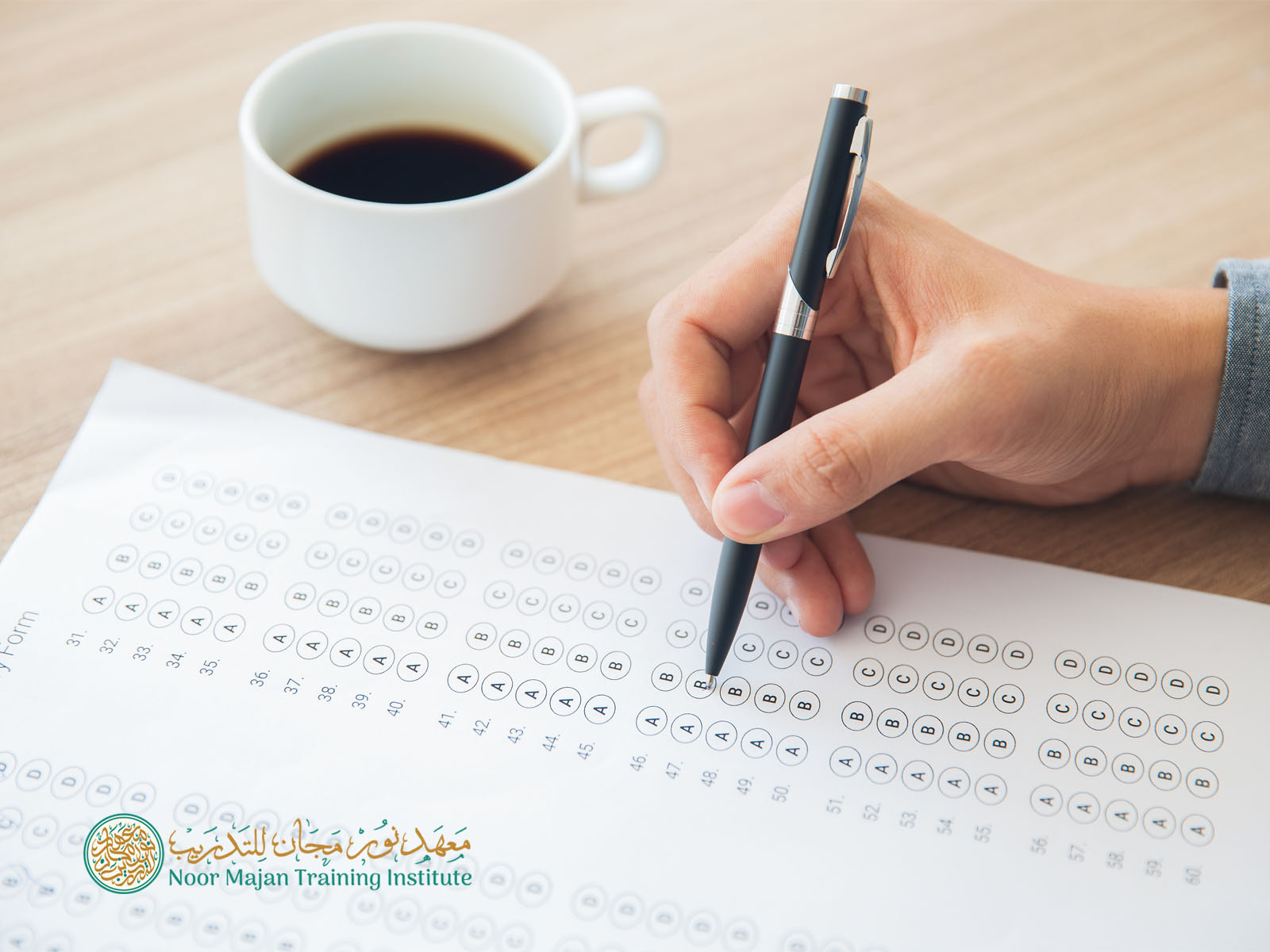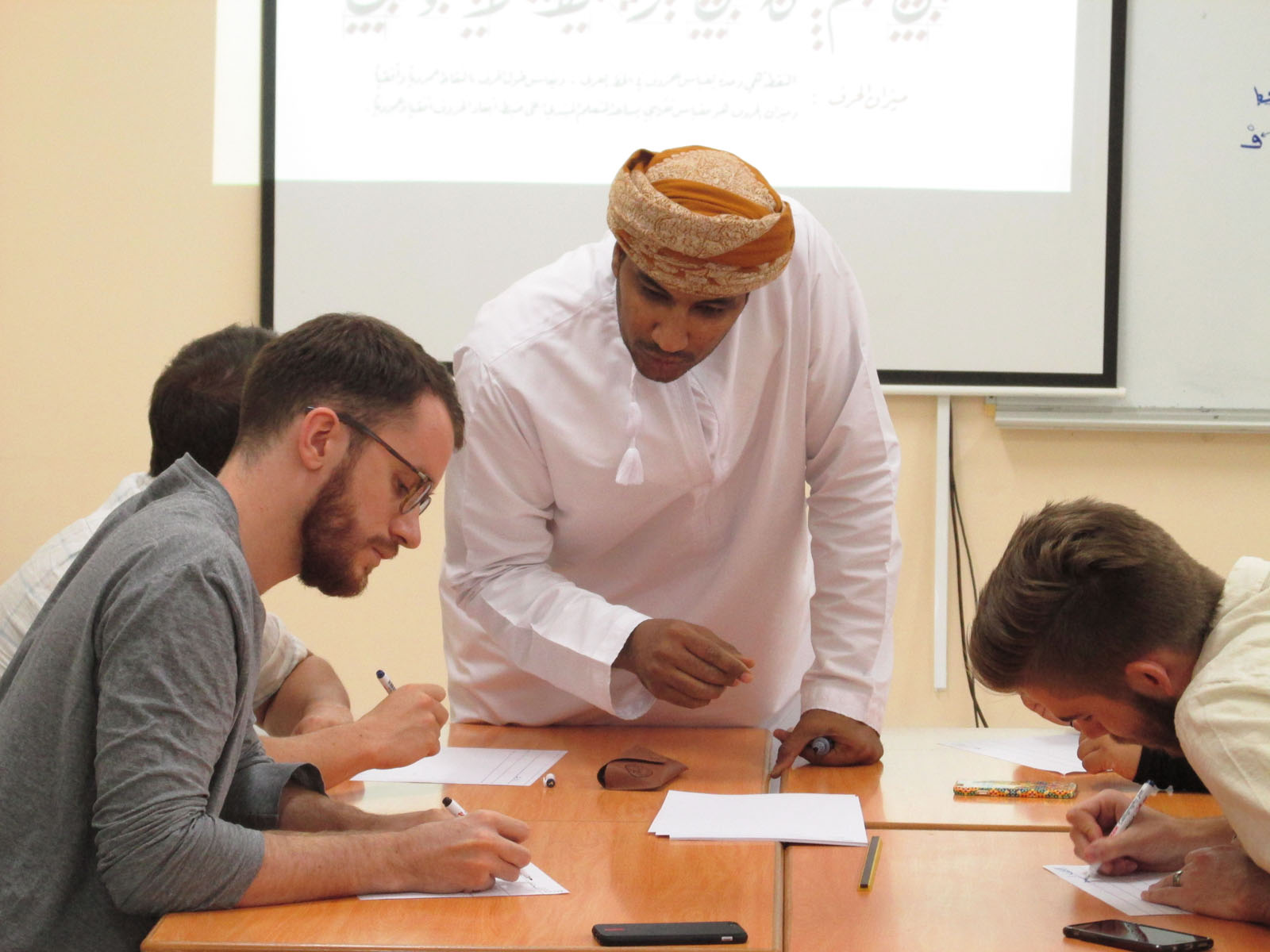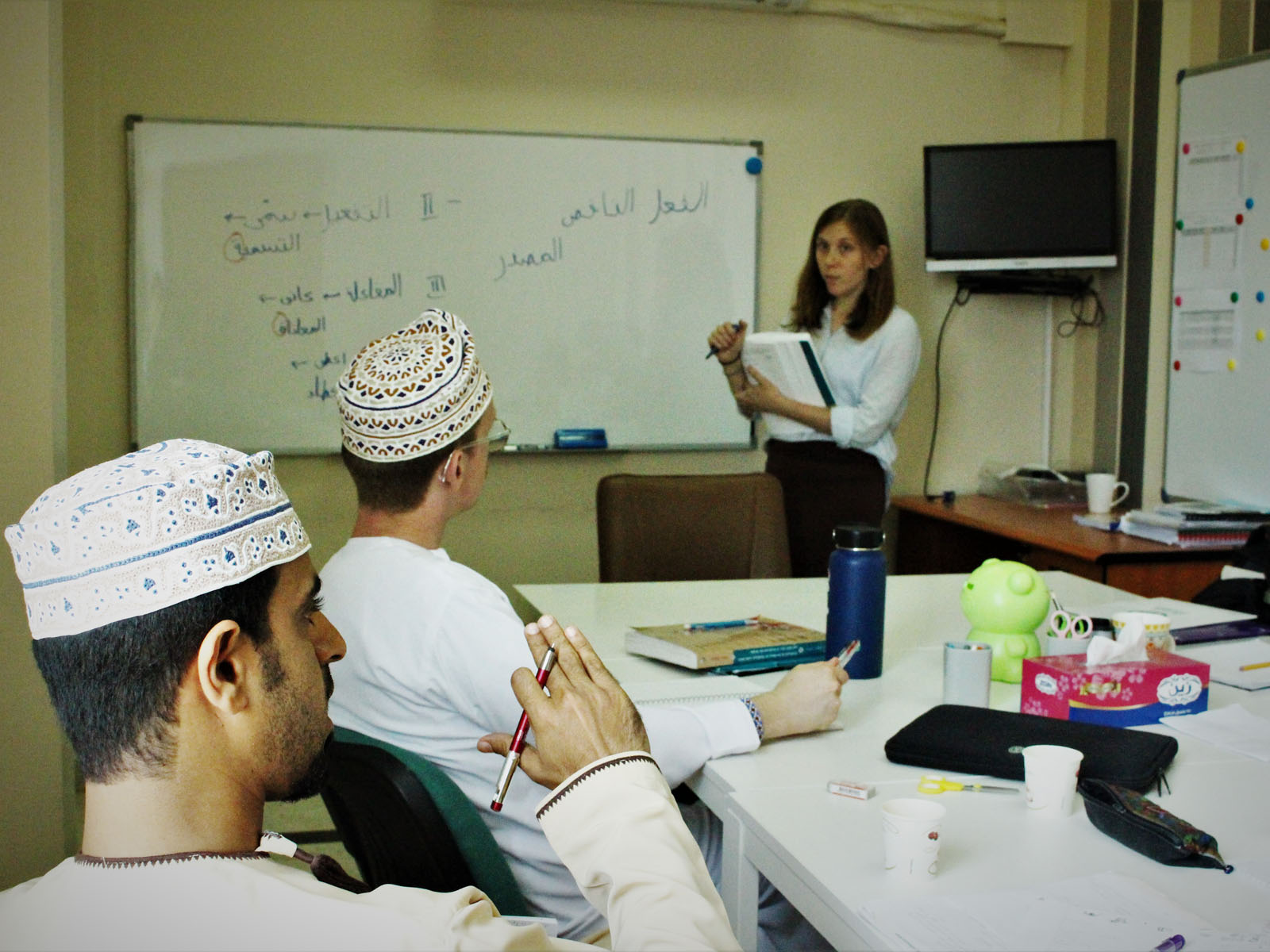Academic Program Overview
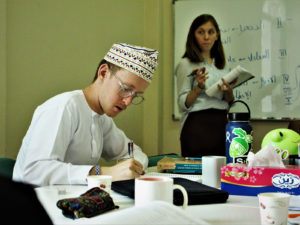 The intensive Arabic program is designed to rapidly develop a student’s language abilities by enabling them to engage with Arabic speakers confidently.
The intensive Arabic program is designed to rapidly develop a student’s language abilities by enabling them to engage with Arabic speakers confidently.
Noor Majan believes that successful language acquisition occurs when students are repeatedly challenged to develop their listening, speaking, reading, and writing abilities in a structured environment. Noor Majan’s intensive Arabic program thus reflects this idea by developing all four language skills with a focus on three distinct concentrations: 1) foundational knowledge in Modern Standard Arabic (MSA), 2) skills development, and 3) application of knowledge and through media literacy. The program will provide intensive reading, writing, speaking, and listening practice for 20 formal contact hours per week over the course of 4-week terms. This makes for a total of 100 formal contact hours per month. In addition to the 20 weekly formal contact hours, Noor Majan’s intensive Arabic course strengthens students’ abilities with 2 hours of language partner sessions per week. During these language partner sessions, students apply their classroom knowledge in a real-life setting, thereby consolidating their knowledge.
Our institute uses authentic and genuine material from print and broadcast media and the internet. Students will acquire the competence to consume, understand, and comment on news broadcasts, articles, excerpts, and forum contributions using the adequate language register. Throughout the course, students will build on existing knowledge of Arabic grammar, vocabulary, pronunciation, spoken, and written skill sets. Finally, students will be introduced to various spoken dialects, enhancing their ability to understand the greater Arabic-speaking world.
For information on our program dates, please see below.
Program Dates
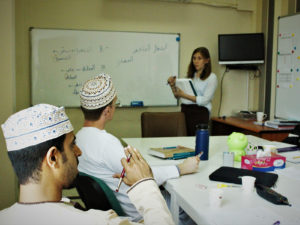 Noor Majan offers intensive Arabic language courses on one-month and two-month cycles. Our scheduling is designed to accommodate the needs and time constraints of university students and professionals alike while providing the maximum number of hours to meet language acquisition goals. The continuous nature of Noor Majan’s programs enables students to enter at any point during the year and study for as short as a month or for as long as a year.
Noor Majan offers intensive Arabic language courses on one-month and two-month cycles. Our scheduling is designed to accommodate the needs and time constraints of university students and professionals alike while providing the maximum number of hours to meet language acquisition goals. The continuous nature of Noor Majan’s programs enables students to enter at any point during the year and study for as short as a month or for as long as a year.
On average, each program consists of 100 formal contact hours per month. Classes meet for five teaching hours per day, five days a week, a total of 25 contact hours per week, or 200 hours per program cycle. In addition to summer, semester, and winter study abroad terms, we welcome students who desire to study at Noor Majan for any given month of the year. Please see the program offering table below for prices and program dates.
Between every program, there is a week-long break for the institute’s professional development workshops and preparation for the next session. Students often elect to use the break to travel around the Sultanate or visit new places in the region.
Schedule 2018 – 2019
| Code | Start date | End date | Notes | Fees |
|---|---|---|---|---|
| 1064 | 6 Dec 2017 | 1 Feb 2018 | 1900 OMR | |
| 1065 | 11 Feb 2018 | 5 Apr 2018 | 1900 OMR | |
| 1066 | 8 Apr 2018 | 31 May 2018 | Isra’ wal-Mi’raj on 13 April
Ramadan starts on 16 May |
1900 OMR |
| CLS
1067 |
1 Jun 2018 arrival
3 June 2018 start |
3/4 Aug 2018
2 Aug 2018 |
Eid al-Fitr will be on 15 June, Thursday 14 June will be the last day of Ramadan Eid Break 14 Jun 2018 – 19 Jun 2018
23 July Renaissance Day included in Eid holiday |
1900 OMR |
| 1068 | 5 Aug 2018 | 6 Sept 2018 | Eid break 19 Aug 2018 – 23 Aug 2018 | 1900 OMR |
| 1069 | 9 Sept 2018 | 1 Nov 2018 | 11 Sept Islamic New Year | 1900 OMR |
| 1070 | 4 Nov 2018 | 27 Dec 2018 | 18 Nov National Day
20 Nov Mawlid |
1900 OMR |
| 1071 | 30 Dec 2018 | 21 Feb 2019 | 1900 OMR | |
| 1072 | 24 Feb 2019 | 18 Apr 2019 | Isra’ wal-Mi’raj on 3 April | 1900 OMR |
| 1073 | 21 Apr 2019 | 23 May 2019 | Ramadan starts on 6 May | 5-week course
1100 OMR |
| Training | 26 May 2019 | 30 May 2019 | Training & planning | |
| Eid Break | 2 Jun 2019 | 10 Jun 2019 | Eid al-Fitr 5 Jun | 5 days holiday |
| 1074
CLS |
12 Jun 2019
9 Jun 2019 |
8 Aug 2019
6 Aug 2019 (departure) |
23 July Renaissance Day
Hajj (4 Dhu-l-Hijja) starts on 4 Aug Eid al-Adha is on 12 Aug |
1900 OMR |
| Eid Break | 11 Aug 2019 | 15 Aug 2019 | 5 days holiday | |
| 1075 | 18 Aug 2019 | 10 Oct 2019 | 31 Aug Islamic New Year | 1900 OMR |
| 1076 | 13 Oct 2019 | 12 Dec 2019 | 10 Nov Mawlid
18 Nov National Day |
1900 OMR |
Course Objectives
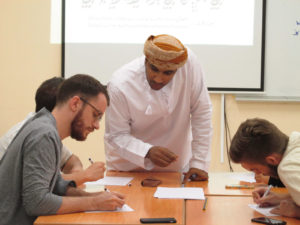
Scolarships
Objective 1 : Grammar, Text production and discussion
Writing: Be introduced to new grammatical features that are part of a higher level of expression. Students will learn to construct sentences and express more complex thoughts independently. Students will be asked to produce texts departing from the texts treated in class. These include summaries, descriptions, narrations and argumentative pieces developing a personal standpoint according to their level.
Speaking: Students will discuss current topics in class or in debate groups using the studied grammar features. They will have awareness raised concerning typical mistakes in sentence structure and pronunciation. The course is completed by oral presentations in class.
Objective 2: Media literacy
Listening: Students will develop the ability to comprehend utterances in the target language in recorded from broadcast media, in both fusha (MSA) and commonly spoken Arabic as found in reports, interviews and talk shows.
Reading: Students will be introduced to texts from print media and internet using the grammatical structures under study. In this unit students will read different genres of texts, learn and apply skimming techniques according to their level, understand in-depth the given texts and analyse them grammatically and style-wise.
How We Evaluate Our Courses
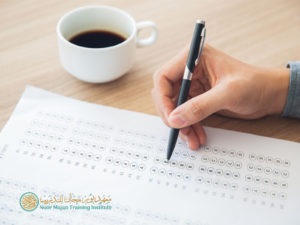
Evaluate
Students receive continuous feedback from instructors throughout the course. Evaluation is a reflection of the student’s proficiency, participation, engagement, and progress. Feedback is based on oral participation in class, results in quizzes, tests, and final exams as well as oral presentations in class and homework completion. Students can request individual meetings with their teachers whenever they wish to discuss their performance and progress.
Noor Majan Grading Scale
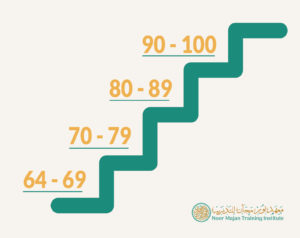
| Grades % | Excellent | Very Good | Good | Pass |
|---|---|---|---|---|
| 90 – 100 | x | |||
| 80 – 89 | x | |||
| 70 – 79 | x | |||
| 64 – 69 | x |
Course Material
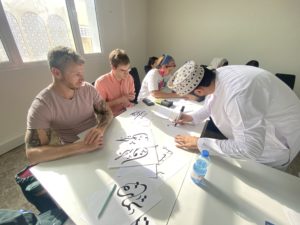
The primary course book used by Noor Majan is Al-Kitaab fii ta’allum al-’Arabiyya by Brustad/Al-Battal (3rd edition). The selection is made to complement the course instruction used in North American universities, but is not the sole resource our instructors rely on. Coursework may be complemented with excerpts from other renowned sources, such as Al Kitab Al Asasi (El Seyyid Badawi), Modern Standard Arabic (Eckehard Schulz), and Ahlan wa Sahlan (Mahdi Alosh). For the media course, classes are based on authentic, real-time sources from print and broadcast media.
Our methodology is to engage the mind with a relevant and appropriate usage of the language. Thus, any opportunity to bring external sources and materials is exploited and very much encouraged by the Noor Majan methodology.
The material listed above serves as a base for our instruction. We are happy to accommodate our curricula for groups of students with specific needs and requirements. Our institute and teachers are flexible and experienced with a wide range of literature for teaching Arabic to non-native speakers. Please contact us directly with any inquiries or requests related to the curriculum.
Block 1: Learning Outcomes (Beginner)
At the end of the unit/program, Arabic students with beginner proficiency will be able to form short and simple sentences. Students will possess a strong foundation of basic vocabulary as used in familiar and everyday situations, although with a limited ability to use this vocabulary in a grammatically correct fashion. They will be able to answer simple formulaic questions with only rare occurrences of mistakes in vocabulary and grammar. Students will start expressing their thoughts independently of memorized expressions, even if their utterances are at times incomplete or incorrect. Students will be able to understand the general content of speech on familiar topics, and will have developed a more accurate sense of differentiation between similar sounds of the Arabic alphabet for text production.
Block 2: Learning Outcomes (Advanced Beginner)
At the end of the unit/program, Arabic students with advanced beginner proficiency will be able to express themselves about personal topics and issues relating to daily life in short sentences. Students will be able to express their needs, requirements, and wishes (in a restaurant, hotel, taxi, or shop) and speak about their hobbies. They will be able to answer non-formulaic questions to a certain extent, and will sometimes be able to correct themselves while speaking or writing. Students will have a more fluent reading ability and develop a better sense of Arabic written expression. Students will be able to understand the general content of speech, and will have developed a more accurate sense of differentiation between similar sounds of the Arabic alphabet.
Block 3: Learning Outcomes (Intermediate)
At the end of the unit/program, Arabic students with intermediate proficiency will be able to converse confidently about social issues. They can retell stories and speak about events that happened in the past. Students at this level will be able to express themselves on a variety of topics in all tenses. They can be understood by native speakers and partake in their conversations. Students will be able to understand and analyze Arabic grammar as used in diverse sources. Students will be able to use new grammar and vocabulary in order to produce coherent texts about social, historical, and personal topics.
Block 4: Learning Outcomes (Advanced)
At the end of the unit/program, Arabic students with advanced proficiency will be able to express their opinion supported by arguments and can coherently reply to other opinions being expressed. Students at this level will be able to speak and write about varied and complex topics and issues that do not pertain to their direct environment and life. They are able to understand abstract texts and speech and can express themselves on these topics intelligibly. They are able to process authentic text sources of the target language such as print and broadcast media, books, and websites. Likewise, they can independently develop on the issues raised in these source texts and organize written and oral texts on a formal language level.
Block 5 Learning Outcomes (Higher Advanced)
At the end of the unit/program, Arabic students with higher advanced proficiency will be able to express their opinion supported by arguments and can coherently reply to other opinions being expressed. Students at this level will be able to speak and write about varied and complex topics and issues that do not pertain to their direct environment and life. They are able to understand abstract texts and speech and can express themselves on these topics intelligibly. They are able to process authentic text sources of the target language such as print and broadcast media, books, and websites. They can independently develop on the issues raised in these source texts and organize written and oral texts on a formal language level.
Daily schedule – Ibri
| Start | Finish | |
|---|---|---|
| 8:30 | 10:10 | MSA Textbook work |
| 10:10 | 10:30 | Break |
| 10:30 | 11:20 | MSA Skills focus |
| 11:20 | 11:30 | Break |
| 11:30 | 01:10 | Media Arabic |
| 01:10 | 01:50 | Lunch |
Daily schedule – Muscat
| Start | Finish | |
|---|---|---|
| 8:30 | 09:35 | First lesson |
| 09:45 | 10:55 | Second lesson |
| 11:15 | 12:15 | Third lesson |
| 12:25 | 01:25 | Fourth lesson |
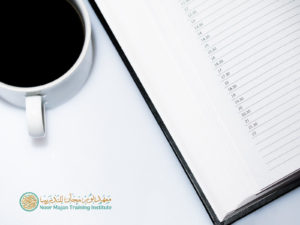 Language Partners
Language Partners
At Noor Majan we recognize that successful language acquisition comes from repetitive application of concepts and knowledge in real life situations. Thus, to support language growth we pair students with local Omani language partners for two hours every week. These individuals are given training on intercultural communication and strategies on how to support students studying Arabic. They encourage students to speak Arabic freely and to be confident in their language abilities. More than often language partners become students’ friends and serve as a mentor in engaging in the local culture. Friendships between language partners often leads to students being invited to their homes or to family events.

